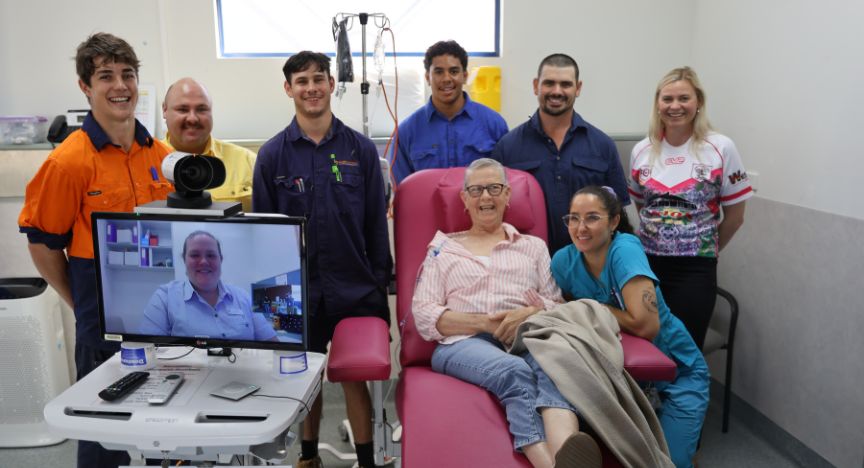
Patients at Barcaldine Multipurpose Health Service now have a comfortable new chair to use while undergoing tele-chemotherapy, thanks to the Barcaldine Sandgoannas Rugby League Club.
The club has donated a new Quantum treatment recliner chair and remote control valued at nearly $10,000.
Barcaldine MPHS Director of Nursing Karen Deininger said the senior rugby league club had undertaken some extensive fundraising to raise the money for the new chair.
“I’d like to thank the Barcaldine Sandgoannas members and president Rhys Peacock for their generosity and their support of our hospital with this donation,’’ Ms Deininger said.
“The community spirit in Barcaldine is just amazing and it’s just such a pleasure for all our staff to live and work amongst these incredible people here.’’
Ms Deininger said the new chair would support the existing tele-chemotherapy service that has been available at Barcaldine MPHS since February 2020.
Between two and five patients a week use the Barcaldine tele-chemotherapy service.
The service allows nurses at Barcaldine to administer anti-cancer drugs locally while being guided and advised via video link by specialised staff at the Royal Brisbane and Women’s Hospital.
Ms Deininger said cancer patients undergoing chemotherapy generally needed to have treatment either weekly, every second week, or every three weeks, depending on their specific treatment program.
“Having to travel away from home so frequently, often a very long way, can prove to be a significant practical, emotional and financial burden for anyone and even more so if you have a family, a job, or other such responsibilities,’’ she said.
“It’s so much easier if you can do it closer to home.’’
The Barcaldine service is an extension of a successful program introduced at Longreach Hospital in December 2018 with the support of the Metro North Hospital and Health Service.
The tele-chemotherapy service saves patients who are suitable to use it the need to travel to a larger centre on a regular basis for several days at a time.
Not all cancer patients are eligible to use the tele-chemotherapy service.
“The program is ideal for those patients receiving certain low-risk therapies,” Ms Deininger said. “Patients requiring more complex therapy will still need to travel to a more specialised cancer care centre outside our health service for their treatment.’’